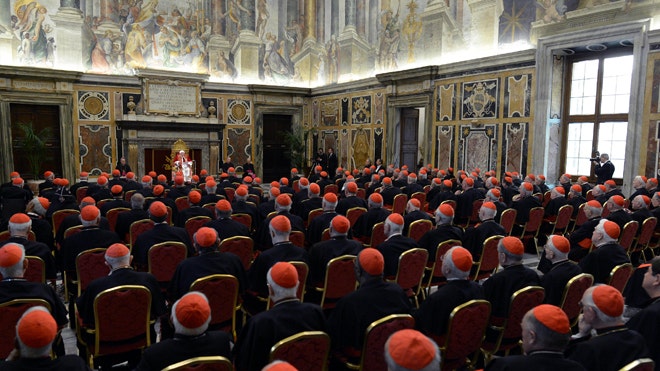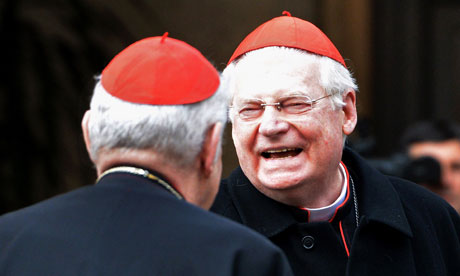MaxShimba
JF-Expert Member
- Apr 11, 2008
- 35,772
- 4,054

Cardinal Marc Ouellet, top center, prays next to Cardinal Angelo Bagnasco on Wednesday during a vespers celebration in St. Peter's Basilica at the Vatican. (Photo by AP Photo/Gregorio Borgia)
The papal conclave, the process by which cardinals choose a new Pope, begins tomorrow in the Sistine Chapel. See the interactive graphic below for more details on how a new Pope is chosen. http://www.telegraph.co.uk/news/religion/the-pope/9922413/Pope-election-how-the-Papal-conclave-elects-a-new-Pope.html
The decision will be made by 117 cardinals from around the world, and takes place entirely in secret.
The result of the vote is announced to the world through the colour of smoke from the Sistine Chapel.
If the smoke is white, a decision has been reached, and the new Pope comes out to make his first blessing to the assembled worshippers from the balcony of St Peter's Basilica.

http://www.telegraph.co.uk/news/religion/the-pope/9922413/Pope-election-how-the-Papal-conclave-elects-a-new-Pope.html


